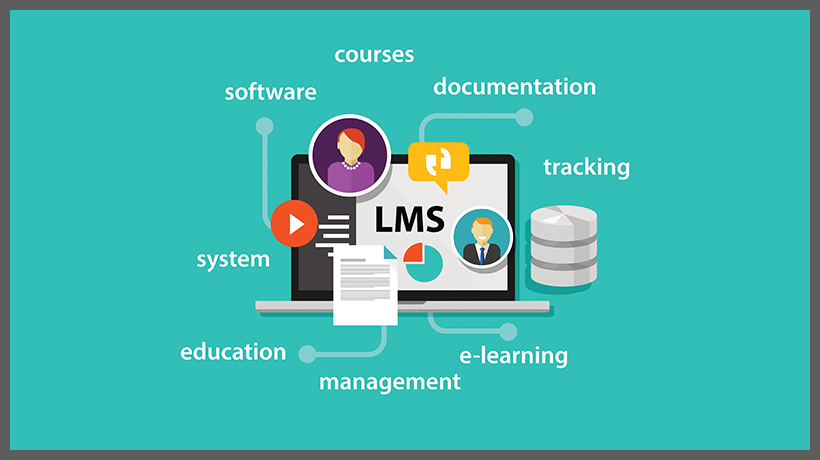Benefits of Learning Management Systems
Learning Management Systems (LMS) have revolutionized the way we approach education and training. In this article, we will explore the numerous benefits of using an LMS, and how it can enhance the learning experience for individuals and organizations alike.
Improved Accessibility and Flexibility
One of the key advantages of utilizing an LMS is the improved accessibility and flexibility it offers. Traditional learning methods often require physical presence, limiting access to education and training. However, with an LMS, learners can access course materials and resources anytime, anywhere, as long as they have an internet connection. This flexibility allows individuals to learn at their own pace, fitting their studies around their busy schedules.
Enhanced Collaboration and Engagement
Learning Management Systems provide a platform for enhanced collaboration and engagement among learners. Through features like discussion forums, chat rooms, and virtual classrooms, learners can interact with instructors and peers, fostering a sense of community and encouraging active participation. This collaborative environment promotes knowledge sharing, problem-solving, and critical thinking, resulting in a more engaging and enriching learning experience.
Personalized Learning Experience
An LMS enables personalized learning experiences by allowing learners to customize their educational journey. Through adaptive learning technologies, the system can analyze individual performance, identify strengths and weaknesses, and suggest personalized learning paths. This tailored approach ensures that learners receive the most relevant content, optimizing their learning outcomes and overall satisfaction.
Efficient Training Management
For organizations, an LMS streamlines training management processes, saving time and resources. With an LMS, administrators can easily create, distribute, and track training courses for employees. This centralized platform eliminates the need for manual record-keeping and simplifies training logistics. Additionally, the system can generate comprehensive reports and analytics, providing valuable insights into training effectiveness and employee progress.
Cost-Effectiveness
Implementing an LMS can lead to significant cost savings for both individuals and organizations. Traditional learning methods often involve expenses related to travel, accommodation, and physical learning materials. With an LMS, these costs are greatly reduced or eliminated altogether. , the scalability of an LMS allows for cost-effective training of large numbers of learners without incurring additional expenses.
Improved Performance and Knowledge Retention
Studies have shown that utilizing an LMS can lead to improved performance and knowledge retention. The interactive and multimedia-rich nature of LMS courses enhances learner engagement and comprehension. Additionally, the ability to revisit course materials and resources at any time facilitates better retention of information. This ultimately translates into improved performance and increased productivity in both academic and professional settings.

Learning Management Systems offer a multitude of benefits, ranging from improved accessibility and flexibility to enhanced collaboration and engagement. The personalized learning experience, efficient training management, cost-effectiveness, and improved performance and knowledge retention make LMS an invaluable tool for both individuals and organizations. By harnessing the power of an LMS, learners can unlock their full potential and achieve their educational and professional goals.
Frequently Asked Questions about the Benefits of LMS
1. What is an LMS?
An LMS (Learning Management System) is a software application that helps organizations manage and deliver educational content and training programs.
2. How can an LMS benefit my organization?
An LMS can provide several benefits, including centralized content management, streamlined training processes, improved learner engagement, and enhanced tracking and reporting of training activities.
3. Can an LMS save my organization time and money?
Yes, an LMS can significantly save time and money by eliminating the need for traditional classroom-based training, reducing travel expenses, and automating administrative tasks such as registration and reporting.
4. What are the advantages of online learning through an LMS?
Online learning through an LMS allows learners to access training materials anytime, anywhere, at their own pace. It promotes self-directed learning, increases knowledge retention, and enables organizations to reach a geographically dispersed workforce.
5. How can an LMS improve learner engagement?
An LMS offers interactive features such as quizzes, discussions, and multimedia content that can enhance learner engagement. It also allows for personalized learning paths and progress tracking, keeping learners motivated and involved in their training.
6. Does an LMS support blended learning approaches?
Yes, an LMS can support blended learning by combining online and offline training methods. It enables organizations to deliver a mix of e-learning modules, virtual classrooms, and face-to-face sessions, providing a more flexible and comprehensive learning experience.
7. Can an LMS help track and measure training effectiveness?
Absolutely! An LMS provides robust tracking and reporting capabilities, allowing organizations to monitor learner progress, assess performance, and measure the effectiveness of training programs. This data can help identify areas for improvement and make data-driven decisions.
8. Does an LMS support compliance training?
Yes, an LMS is particularly useful for compliance training. It ensures that employees receive the required training, tracks their completion status, and generates compliance reports for audits. It also enables organizations to deliver consistent and up-to-date training content to meet regulatory requirements.
9. Can an LMS be integrated with other systems?
Yes, an LMS can integrate with various systems such as HRIS (Human Resources Information System) and CRM (Customer Relationship Management) platforms. Integration allows for seamless data exchange, automated user management, and enhanced reporting capabilities.
10. How can an LMS support employee development and career growth?
An LMS facilitates continuous learning and skill development by providing access to a wide range of training resources. It enables organizations to create personalized learning paths, offer certifications, and track employee progress, fostering career growth and professional development.




